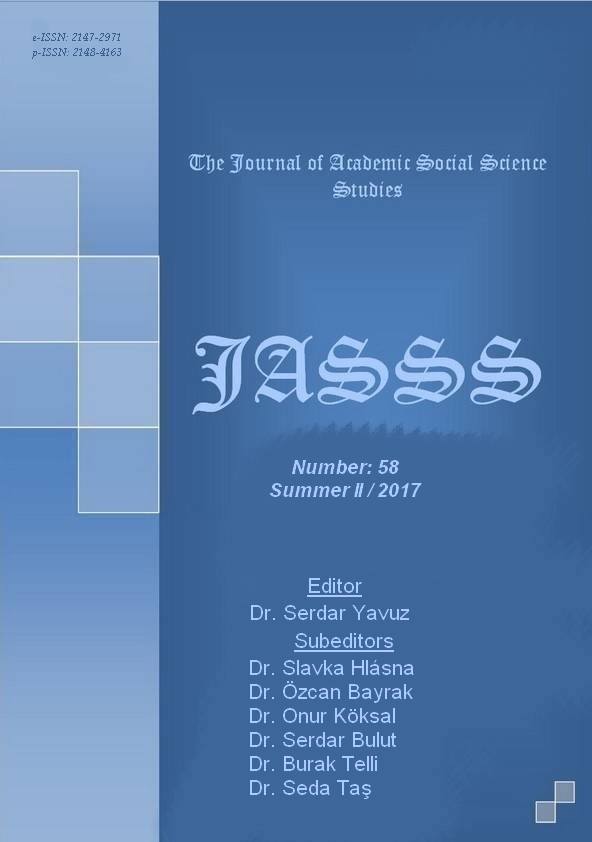Author :
Abstract
Çocuklar, bir yandan sevgi, eğlence, keyif ve paylaşım; diğer yandan da soy bağının süreklilik kazanması açısından aile kurumunu yapısallaştıran anlamlı toplumsal öznelerdir. İşte bu çalışmanın amacı, kentsel alt sınıf ailelerinin çocuklarına olanak sunan devletin kentsel alt sınıf ailesi açısından nasıl algılandığını ortaya koymaktır. Bir başka anlatımla, bu çalışma, kentsel alt sınıf hane halklarında devletin özellikle toplumsal boyutta nasıl yansıma bulduğunu açığa çıkarmaktır. Bu doğrultuda araştırma evrenimiz, İl Emniyet Müdürlüğü tarafından tespit edilen iki yüz yirmi okul öğrenciden oluşmaktadır. Söz konusu evrenden araştırma sürecimize oldukça verim katan örneklem oluşturma yoluna gidilmiştir. Böylelikle araştırma örneklemini oluşturan yirmi iki okul öğrencisinin ailesine ulaşılmıştır. Ayrıca özellikle ailede çocukları ile daha fazla ilgili olan annelere ulaşılmaya çalışılmıştır. Bu anlamda bu çalışmanın metodolojik gerekçesi, özellikle araştırma örnekleminin sorunlarını kendi bakış açılarından ortaya koymaları problematiğine dayandığından derinlemesine görüşme nitel araştırma yöntemi tercih edilmiştir. Bu çalışmadan elde edilen anlamlı bulgulardan biri de kentsel alt sınıf ailelerinin, her şeyden önce kendi çocuklarına değer vermeleridir. Bir başka bulgu ise kentsel alt sınıf ailelerin çocuklarının en iyi eğitimi almalarını ve spor faaliyetlerini desteklemeleri ve bu iki alandaki tüm desteğin devletten geleceğine inanmalarıdır. Buna karşın kentsel yaşam ile daha iyi bütünleşebilmeleri için önemi gittikçe büyüyen kentsel alt sınıf ailelerinin içinde yaşadıkları kent yaşamının kendilerine nasıl olanaklar sunabileceğini göz önünde bulundurmaları oldukça önemlidir.
Keywords
Abstract
Children are significant social actors who shape the institution of family from the point of view of love, entertainment, joy and sharing on one hand; and maintaining lineage on the other hand. As seen, the aim of this study reveals how urban poor families perceive state offering opportunities for urban poor family children from their perspective. In other words, it points out how the state is reflected within urban poor households especially from a societal dimension. In this way, our research universe consists of two hundred and twenty-two school students defined by province police headquarters. Sampling technique has been preferred as it successfully facilitated the whole research process. So, families of twenty-two school students represented within the research sample have been reached. However, it has been tried to reach particularly mothers who are much more concerned about their children within the family. In this sense, deep interview research technique has been preferred as the methodological reason of this study depends upon especially the problematics that research participants may put forth from their perspective. One of the significant findings of this study is first of all that urban poor families appreciate their children as valuable. Another finding is that urban poor families want for their children to take quality education and sports activities, and believe that all of the support within these two fields will come from the state. After all, because of integrating with urban life and the growing importance of urban poor families it has to be taken into account how urban life in which they live offer opportunities to them.





